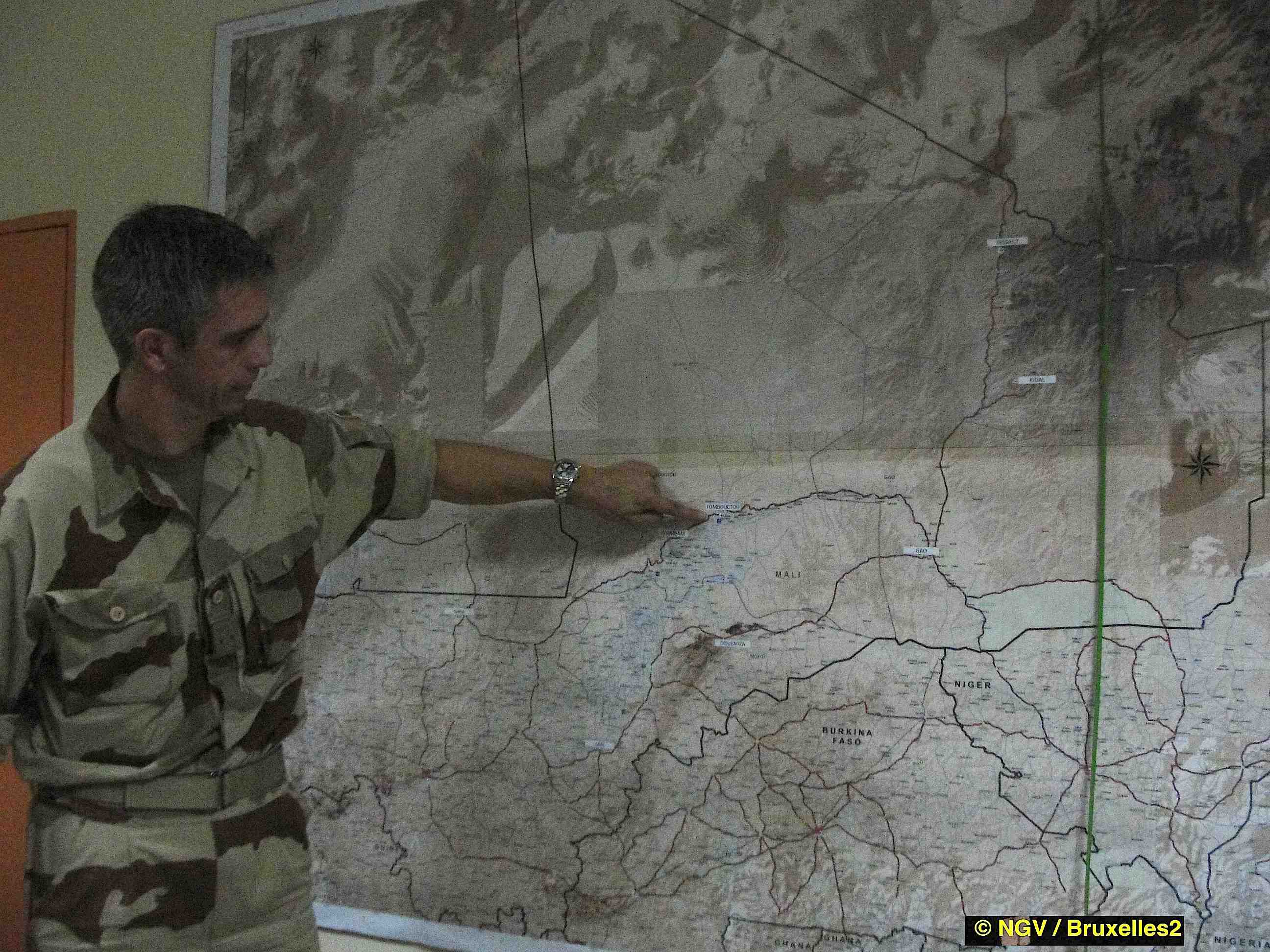Bin Laden dead, some thoughts. An accelerated withdrawal timetable for Afghanistan?
(BRUSSELS2) The list of people wanted by Interpol and the UN has one person less. The death of Bin Laden, announced by President Obama last night, executed by US special operation commandos in the middle of Pakistan, in Abbottabad near Islamabad a week ago, falls, at the right time, in the midst of upheaval in the Arab world. It symbolizes more than ten years of fight against terrorism. A struggle that will not stop but will no longer go through the presence in Afghanistan. For the Europeans, as for the Americans, the door is now open to an accelerated timetable for withdrawal from the country.
We are, still, all Americans
European leaders hailed, frankly, through the voice of Herman Van Rompuy and José-Manuel Barroso (respectively presidents of the European Council and the European Commission), in a joint press release (in English), the death of Bin Laden. " Osama Bin Laden was a criminal responsible for heinous terrorist attacks that claimed the lives of thousands of innocent people. His death makes the world safer and shows that such crimes do not go unpunished. This is an important achievement in our efforts to rid the world of terrorism. The European Union continues to stand with the United States, our international partners and our friends in the Muslim world to fight the scourge of global extremism and build a world of peace, security and prosperity for all..” (*)
A man wanted long before September 11, 2001
The hunt for Bin Laden did not begin on September 11, 2001 as one might think. But long before, with the attacks against civilians or soldiers, in Somalia, Kenya, Tanzania, then in Iraq. It is translated into international law by several resolutions of the UN Security Council, in particular "1267". On October 15, 1999 (before the 2001 attacks), the Security Council demanded - under Chapter VII of the UN Charter - the bringing of Usama bin Laden to a judicial authority for the bombings committed in August 1998 against the American embassies in Nairobi (Kenya) and Dar es Salaam (Tanzania). Resolution which also condemns the Taliban regime for violating international humanitarian law, human rights and more generally international law with the seizure of the Consulate General of Iran and the assassination of Iranian diplomats.
Dead or alive... whose turn it is
We are certainly not going to mourn the death of Bin Laden. But we can note however that this execution symbolizes the policy of the coup de force, which does not bother with the means to achieve the objectives, far from the European 'cannons'. In legal terms, one could indeed qualify Bin Laden's death as an extrajudicial execution, whereas the mandate given was to seize his person to bring him to justice.
Leader Muammar Gaddafi can therefore be worried. To see the international reaction, which welcomes the death of Bin Laden, one can suspect who is next on the list of the "wanted" dead or alive.
An accelerated timetable for withdrawal from Afghanistan
Bin Laden's death does not, as such, close the door to military engagement in Afghanistan, it removes its main political justification: the fight against the instigator of the anti-American attacks of the late 1990s and of September 11, 2001.
The "fight against terrorism" (I don't like the term "war against terrorism" which does not seem justified to me) is not going to stop tomorrow. But Bin Laden's death shows that he requires above all intelligence, action and special force means, rather than the deployment of tens of thousands of men to secure an uncontrollable territory. And that it cannot be limited to Afghanistan, which ties up a lot of resources.
This event comes at the right time to be able to justify a timetable for the withdrawal of the "boys" from Afghanistan that is as robust and accelerated as possible. The Europeans will therefore have to think quickly about their role in the region: either decide to follow the Americans in this withdrawal, or bear more of the weight of the presence. Better burden sharing between allies also responds to a concern of US leaders.
The mandate of IFAS continues however
It must be remembered, in fact, that the international intervention in Afghanistan (the NATO force) is not, at the level of international law, motivated by the prosecution of the perpetrators of the attacks of September 11 or other acts , but by the need to maintain security in the country. The UN resolutions do not mandate IFAS to prosecute bin Laden as such.
The mandate entrusted on December 20, 2001 by the UN Security Council to a coalition - "commanded and organized" by the British - then had a single objective: to help the Authority? Afghan interim “ at? maintain security at? Kabul and its surroundings ", so that " Authority? Afghan interim and United Nations personnel can work in a safe environment (resolution 1386). The coalition will then be successively commanded by Turkey, joined by Germany and the Netherlands, before being entrusted to NATO.
This mandate will be extended in 2003, at two levels: geographically, to all the regions of Afghanistan "and at the functional level to security" other international civilian personnel who contribute, in particular, to? the reconstruction effort and a? humanitarian action » and more generally to a « assistance in the field of security? for the execution of all other tasks (resolution 1510).
(*) Osama Bin Laden was a criminal responsible for heinous terrorist attacks that cost the lives of thousands of innocent people. His death makes the world a safer place and shows that such crimes do not remain unpunished. This is a major achievement in our efforts to rid the world of terrorism. The European Union continues to stand shoulder to shoulder with the United States, our international partners and our friends in the Muslim world in combating the scurge of global extremism and in building a world of peace, security and prosperity for all.